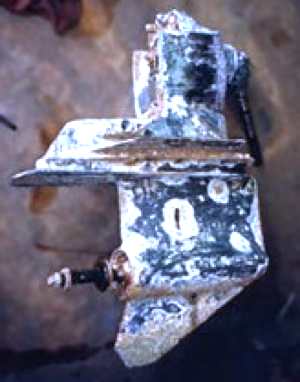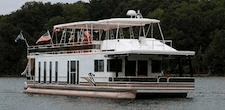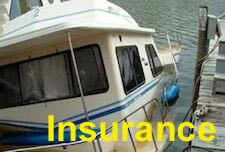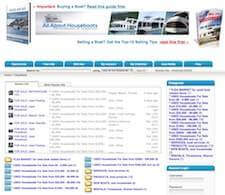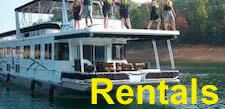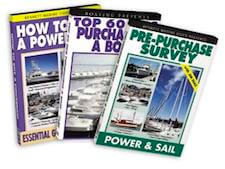
Houseboat Corrosion Electrolysis Problems - Galvanic Isolators
by Mark
(Stockton, CA)
Have been having problems with houseboat corrosion electrolysis, even with a galvanic isolator. I am having an issue in the California Delta with electrolysis, and electrolysis is eating away at my Volvo Penta outdrive.
I have put on a galvonic isolator and I have hung huge zinc anodes off the back of the boat when in marina. I just recently found out that in fresh water I should be using aluminum anodes, so I started reading about anode placement, and some say to bond them with a cable to the engine, and don't use copper wire.
So I hung a piece of aluminum with a cable by the outdrive, I also hung a another piece of aluminum tied with some nylon rope off the back but not bonded to the houseboat.
After 2 weeks, the one that is bonded to the house boat is in perfect condition, the one not bonded to the boat
has several pock marks from corrosion .
I have talked to the Marina and they have had the marina tested in last six months and every part of marina is ok. Today I was checking my 120 volt outlets with that plug-in device that tells you if your wiring is correct in the boat and it said that my hot and neutral were reversed.
I started first with an adapter for the 30 amp plug and plugged it in to the marina side of shoreline and found the marina had the wiring backwards so I straightened that out. Could this backward wiring have been my problem?
Also the last 2 weeks my 12 volt batteries have been disconnected and my alternator and shoreline plug were disconnected.
Thanks for your time, Mark.
 increase sales and profits with targeted traffic? Act now to get our 1/2 price sale, limited offer |
Reply - Answer
Well Mark, sorry to hear about your galvanic corrosion and electrolysis problems. You are on the right track, and I am sure the solution is coming soon.
When it comes to your problem, you will have to do yourself a checklist and go through it step by step. The problems can come from many factors, either the marinas electrical system, a nearby boating neighbor, or possibly from your own boat.
I will post some links below that will help you to identify some problem areas that you can check and verify. Some of these link will show you how to check for voltage/current leaks, testing isolator voltage, proper boat bonding, and AC/DC installations.
Marine Galvanic Corrosion
Types of Marine Corrosion
The Current Scoop on Galvanic Corrosion
You may also want to read a product review on houseboat galvanic isolators, and how they were successful in eliminating the popular problem of marine electrolysis. Having success with galvanic corrosion isolators, and how it stopped the constant and progressive damage to the hull, outdrives, and underwater hardware.
Lastly, hopefully some of our readers will share and post comments about their houseboat galvanic corrosion experiences and solutions. Feel free to use the "Click here to post comments." link found near the bottom of this page.
Thanks again for sharing, IAN from all-about-houseboats
Free Bonus Offer |
